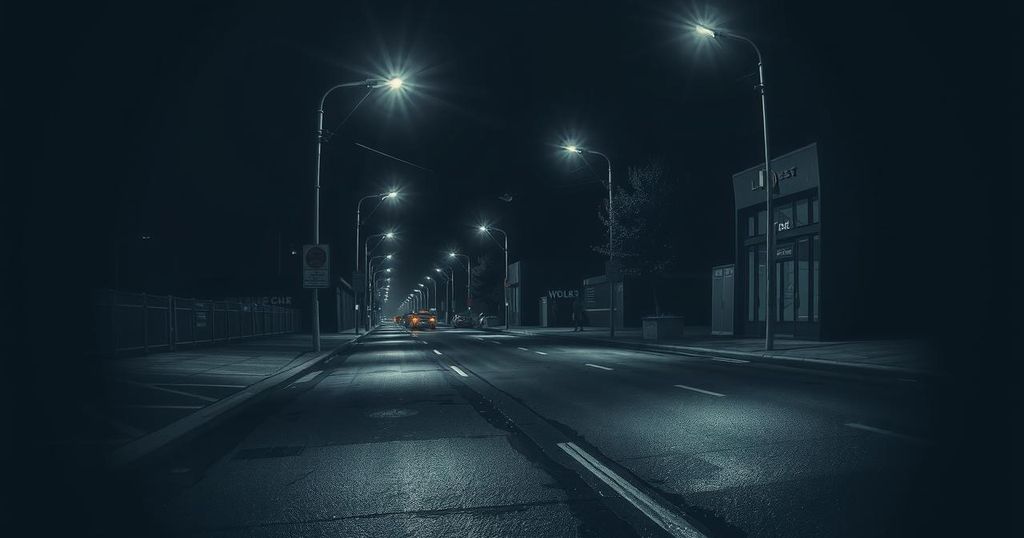Insecurity and Violence Plague Bukavu Amidst M23 Control
In Bukavu, DRC, severe insecurity persists as three to four bodies are reportedly found nightly. The M23 rebel movement controls the area, leading to rampant criminal activity and looting, particularly by the rebels. Educational institutions remain closed, and a pervasive sense of fear and repression characterizes daily life. The situation necessitates urgent international concern and intervention.
In Bukavu, the capital of South Kivu in the Democratic Republic of Congo, significant insecurity is reported, with local sources stating that each night reveals three to four bodies discovered on the streets. Reports indicate the presence of the M23 rebel movement, which gained control of the area in mid-February. Local residents describe a society where criminal gangs operate with little fear of consequence, although these groups predominantly engage in theft rather than murder. Major looting events appear to be orchestrated by the M23 and its allies, resulting in substantial losses such as the theft of a bank and multiple mineral deposits.
The unrest is characterized by rampant looting, particularly in the Kadutu market before the M23 officially entered the city. Accounts suggest that armed gangs seized weapons left behind by retreating Congolese army forces, facilitating the chaos. A prominent incident involved the theft of thirty-four barrels of cassiterite, which were taken under duress from guards during a nighttime heist. Local officials have urged citizens to report such crimes, leaving many questioning whom they should inform.
The M23 forces have reportedly shown extreme violence, executing individuals indiscriminately in response to armed attacks. The Red Cross has recorded numerous casualties, and although the new authority offered some financial compensation to the victims’ families, they claim limited resources due to the ongoing conflict. Everyday life in Bukavu is severely hindered, with minimal vehicular traffic and fears over personal safety deterring parents from sending their children to school, thereby halting educational activities.
Journalists operating within the region face restrictions and are directed to solely promote the views of the occupying forces, with strictures against disseminating information from the official government in Kinshasa. The moratorium on free expression has brought a pervasive gloom to the local populace, which is unusual for the typically resilient Congolese spirit.
In summary, Bukavu is currently enveloped in a climate of profound insecurity and violence, primarily due to the activities of the M23 rebel movement. The surge in criminal activities, rampant looting, and repression of free press have culminated in a significant disruption of social and educational systems. The reported prevalence of bodies discovered on the streets underscores the gravity of the situation, as families grapple with loss and fear. Immediate international attention and resolution strategies are crucial in addressing this crisis and restoring stability in the region.
Original Source: www.fides.org




Post Comment